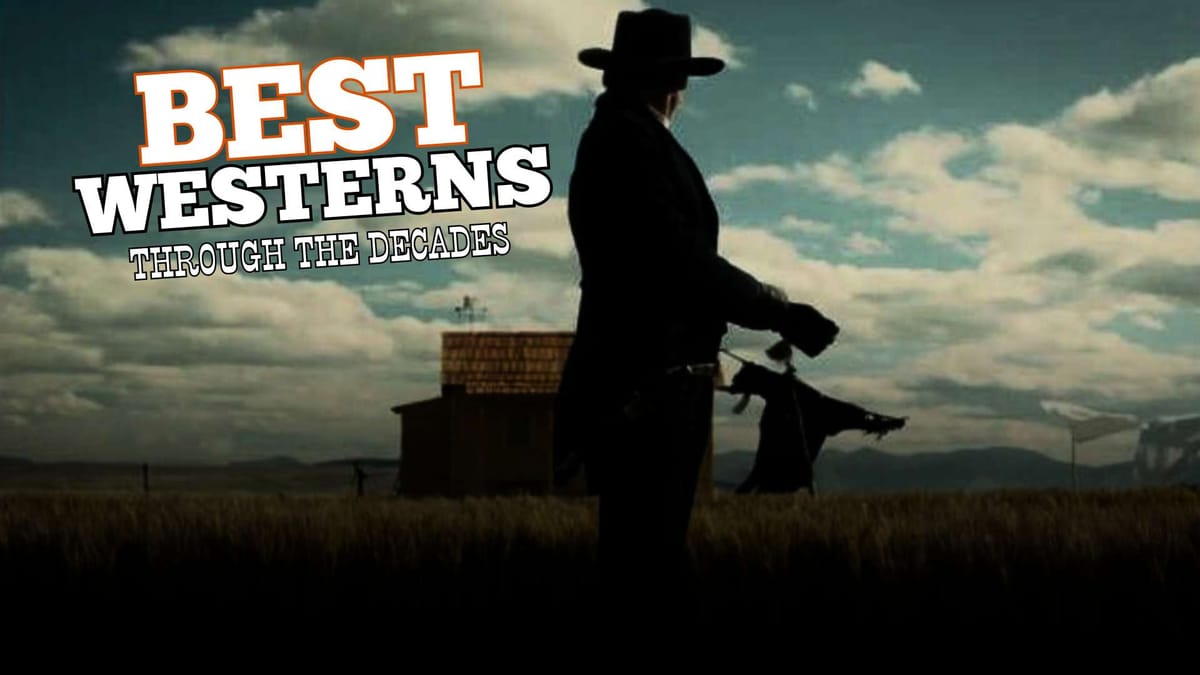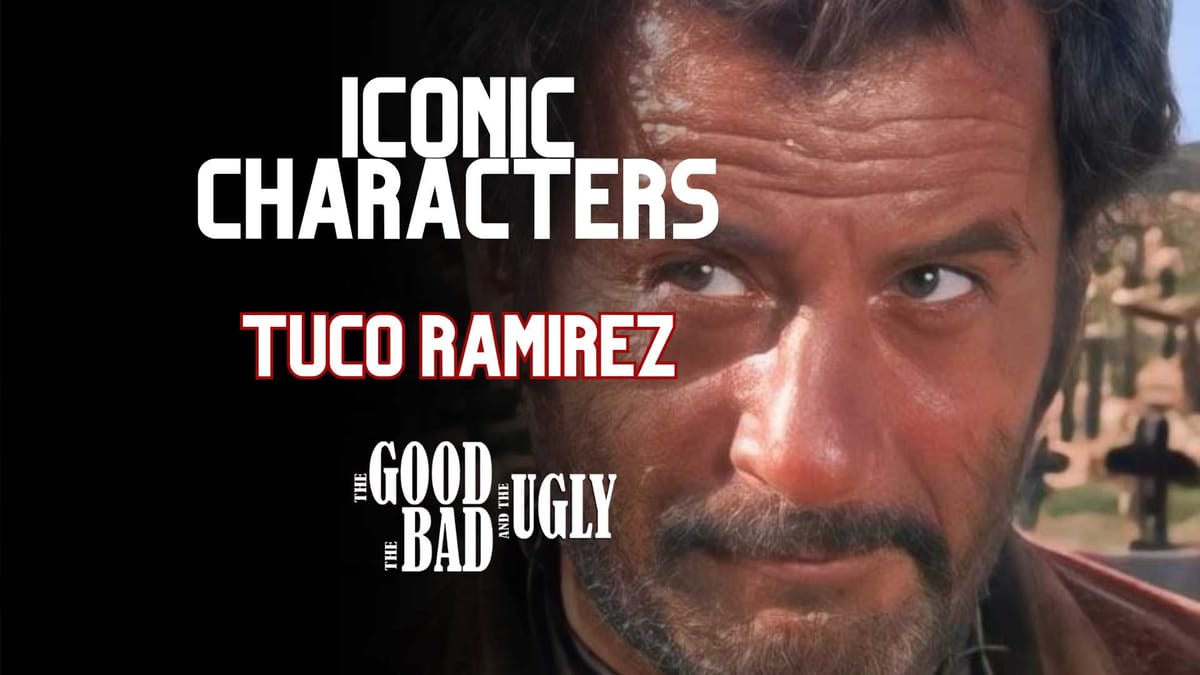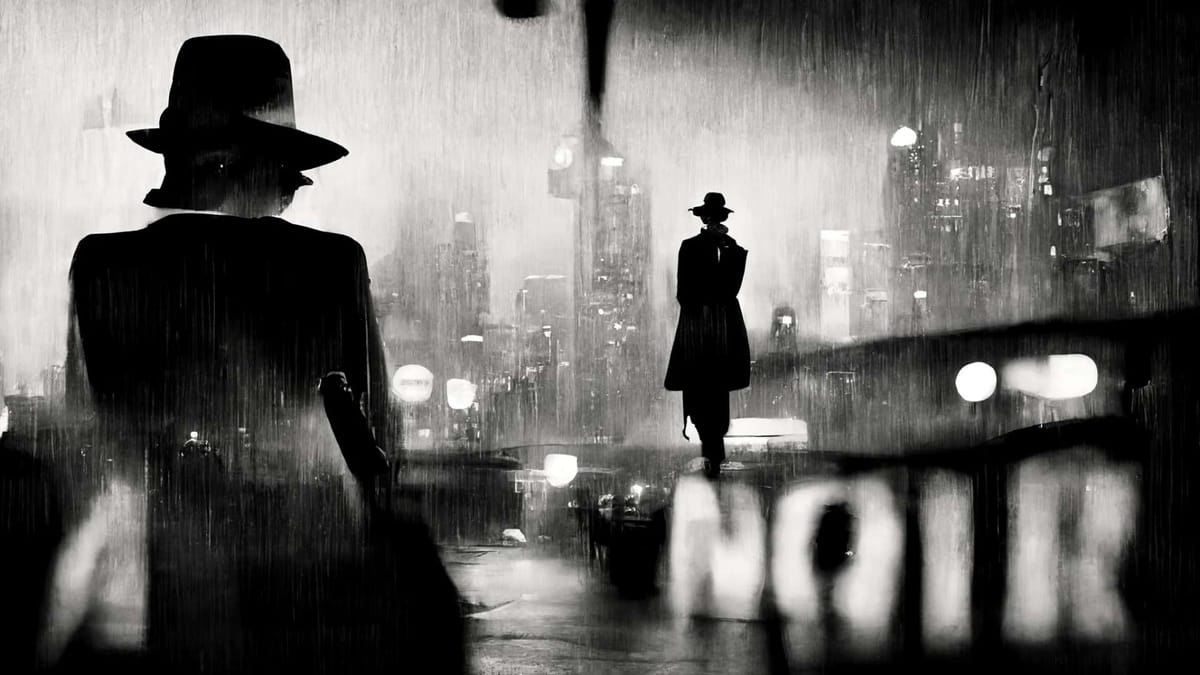Best Westerns Voted by Reddit Users Through The Decades

Discovering truly captivating Western films amidst the vast cinematic landscape can be a daunting task, leaving movie enthusiasts yearning for a curated collection of must-watch titles.
With countless Westerns spanning decades, sifting through the mediocre to unearth the gems can be a time-consuming and frustrating endeavour. How can you ensure you're not missing out on the genre's most iconic and underrated masterpieces?
Fortunately, the Reddit community has taken on the challenge, meticulously compiling a comprehensive timeline of the best Western films through the decades. From the golden age classics to modern neo-westerns, this curated list offers a treasure trove of unforgettable cinematic experiences, allowing you to embark on a journey through the rugged landscapes and timeless tales of the American West.
The Golden Age: Classics that Defined the Genre
During the golden age of Westerns, Hollywood's finest filmmakers crafted masterpieces that would become the foundation of the genre. From the 1940s to the 1960s, these iconic films etched their place in cinematic history with unforgettable characters, sweeping landscapes, and themes that resonated with audiences across generations.
One of the earliest and most influential Westerns of this era was "Stagecoach" (1939), directed by the legendary John Ford. This seminal work not only launched John Wayne to stardom but also set the tone for countless Westerns to follow, with its gritty depiction of the Wild West and its exploration of morality and redemption.

Other classics that defined the genre during this period include "The Ox-Bow Incident" (1943), a powerful exploration of vigilantism and mob justice that remains as relevant today as it was then. Henry Fonda's portrayal of Wyatt Earp in "My Darling Clementine" (1946) offered a fresh take on the retelling of the gunfight at the O.K. Corral, while John Wayne delivered one of his most iconic performances in Howard Hawks' "Red River" (1948), a psychological western that delved into the complexities of human nature.



From Left: The Ox-Bow Incident (1943) / My Darling Clementine (1946) / Red River (1948)
The 1950s and 1960s saw the release of some of the most revered westerns of all time, including "High Noon" (1952), where Gary Cooper's iconic performance as a lawman deserted by his town left an indelible mark on the genre. "Shane" (1953) beautifully captured the essence of a gunfighter trying to embrace a peaceful life, while John Ford's "The Searchers" (1956) showcased John Wayne's tour de force performance in what is widely regarded as one of the greatest westerns ever made.



From Left: High Noon (1952) / Shane (1953) / The Searchers (1956)
The golden age also gave birth to the classic "The Magnificent Seven" (1960), a thrilling remake of Akira Kurosawa's "Seven Samurai," and the thought-provoking "The Man Who Shot Liberty Valance" (1962), which examined the line between myth and reality in the West.


From Left: The Magnificent Seven (1960) / The Man Who Stole Liberty Valance (1962)
Revisionist Westerns: Challenging Conventions
As the genre evolved, filmmakers began to challenge traditional Western tropes, giving birth to the revisionist Western movement in the 1960s and 1970s. These bold and often controversial films sought to deconstruct the romanticised image of the Old West, offering a more realistic and gritty portrayal of the era.
Leading the charge was Sam Peckinpah's "The Wild Bunch" (1969), a violent and unflinching examination of the genre's mythology that left an indelible mark on the way Westerns were perceived. Arthur Penn's "Little Big Man" (1970) took a satirical approach, telling the story from a Native American perspective and challenging the traditional hero-villain dynamic.
Robert Altman's "McCabe & Mrs Miller" (1971) brought a refreshingly unconventional and character-driven narrative to the Western, while Clint Eastwood's Academy Award-winning "Unforgiven" (1992) redefined the genre with its gritty realism and exploration of the consequences of violence.
Jim Jarmusch's surreal and poetic "Dead Man" (1995) offered a unique and thought-provoking take on the genre, cementing its place as a cult classic among cinephiles.





From Top Left: The Wild Bunch (1969) / Little Big Man (1970) / McCabe & Mrs Miller (1971) / Unforgiven (1992) / Dead Man (1995)
Spaghetti Westerns: The Italian Influence
In the 1960s, Italian filmmakers put their own spin on the Western genre, creating a subgenre known as the Spaghetti Western. These films, often shot in Spain and Italy, were characterised by their gritty realism, moral ambiguity, and haunting scores by legendary composer Ennio Morricone.



Sergio Leone's groundbreaking "A Fistful of Dollars" (1964) kicked off the Spaghetti Western craze, introducing the world to the iconic Man with No Name, played by Clint Eastwood. Leone's "Dollars Trilogy" continued with the critically acclaimed "For a Few Dollars More" (1965) and reached its epic conclusion with "The Good, the Bad and the Ugly" (1966), a masterpiece that cemented Leone's place in cinematic history.


Not to be outdone, Leone followed up with "Once Upon a Time in the West" (1968), a sweeping and visually stunning western that is widely regarded as one of the greatest films in the genre. Additionally, the cult classic "Django" (1966) by Sergio Corbucci, inspired countless imitations and sequels, solidifying its place in the annals of Spaghetti Western lore.


Once Upon A Time In The West (1968) / Django (1966)
Neo-Westerns: The Modern Frontier
As the 21st century dawned, filmmakers reimagined the Western genre through a contemporary lens, giving rise to the neo-western movement. These modern tales often explore the lingering remnants of the Old West while grappling with contemporary issues and themes.

The Coen Brothers' "No Country for Old Men" (2007) stands as a prime example, a gritty and suspenseful thriller set in the modern-day American West that examines the consequences of greed and violence. David Mackenzie's "Hell or High Water" (2016) earned critical acclaim for its exploration of the economic struggles faced by small-town America, while Taylor Sheridan's "Wind River" (2017) offered a gripping and unflinching look at life on a Native American reservation.



From Left: No Country For Old Men (2007) / Hell or High Water (2016) / Wind River (2017)
Not shying away from bold reinventions, "The Harder They Fall" (2021) brought a fresh and stylish take to the genre with its all-black cast, breathing new life into the Western and challenging traditional casting norms. For those seeking a genre-blending experience, "Bone Tomahawk" (2015) delivered a unique and unsettling horror-western that kept audiences on the edge of their seats.


The Harder They Fall (2021) / Bone Tomahawk (2015)
Hidden Gems and Cult Favourites
Alongside the classics and groundbreaking films, the Reddit community unearthed a wealth of hidden gems and cult favourites that deserve recognition for their contributions to the Western genre.
Budd Boetticher's masterful and underrated "Seven Men from Now" (1956), "The Tall T" (1957), and "Buchanan Rides Alone" (1958) have gained a dedicated following among cinephiles for their gritty realism and masterful storytelling.



Director Budd Boetticher's Masterfully underrated gems
"Vera Cruz" (1954), starring Gary Cooper and Burt Lancaster, stands as a gritty and violent western that pushed the boundaries of the genre, while "The Great Silence" (1968) defied conventions with its haunting and brutal portrayal of the spaghetti western.


Vera Cruz (1954) / The Great Silence (1968)
For those seeking a unique and atmospheric Neo-Western with a touch of dark humour, "Slow West" (2015) offers a refreshingly different take on the genre. And let's not forget the delightfully tongue-in-cheek and star-studded comedy "Maverick" (1994), which proved that Westerns could be both entertaining and self-aware.


Slow West (2015) / Maverick (1994)
As the Reddit community has shown, the Western genre continues to captivate audiences with its timeless tales of courage, honour, and the resilient spirit of the frontier. Whether you're a fan of the classic golden age films, the gritty revisionist westerns, the bold spaghetti westerns, or the daring neo-westerns of today, there's a western adventure waiting to transport you to the dusty trails and rugged landscapes of the American West.
Bonus Extras
- Bad Day at Black Rock (1955)
- Butch Cassidy and the Sundance Kid (1969)
- Lonely Are the Brave (1962)
- Rio Bravo (1959)
- Winchester '73 (1950)
- Hombre (1967)
- Open Range (2003)
- The Shootist (1976)
- 3:10 to Yuma (1957)
- Tombstone (1993)
- Hang 'Em High (1968)
- Lone Star (1996)
- The Outlaw Josey Wales (1976)
- Jeremiah Johnson (1972)
- One-Eyed Jacks (1961)
- The Long Riders (1980)
- High Plains Drifter (1973)
- The Cowboys (1972)
- Silverado (1985)
- The Grey Fox (1982)
You can view this List on our Letterboxd Profile








Comments ()